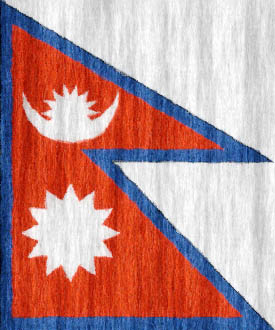IANS
Kathmandu
Top leaders of the Madhesi community, whose protests against Nepal’s new constitution have virtually sealed the India-Nepal border, reached New Delhi yesterday to meet Indian leaders.
The visit comes close on the heels of the visit of Nepal’s Deputy Prime Minister and Minister for Foreign Affairs Kamal Thapa.
The Madhesi Morcha has been protesting for about four months in Nepal’s southern plain Terai, blocking movement of vehicles between the two countries and creating widespread shortages in the
Himalayan nation.
They have expressed serious reservation over some of the contents of the new constitution promulgated in September as well as boundaries of the proposed seven federal units.
Those who reached Delhi include Mahantah Thakur, chairman of the Tarai Madesh Loktantrik Party, Upendra Yadav, chairman of Sanghiya Samajwadi Forum, Rajendra Mahato, chairman of Sadbhavana Party, and Mahendra Yadav, chairman of Tarai Madhes Sadbhavana Party.
Second rung leaders of the Madhesi Morcha have already reached New Delhi. They may call on Prime Minister Narendra Modi on Monday and External Affairs Minister Sushma Swaraj on Sunday.
The Madhesi leaders will also meet Congress president Sonia Gandhi, Janata Dal-United leader Sharad Yadav and Nationalist Congress Party’s D P Tripathi.
Madhesis are demanding increased political representation, proportional inclusion in state organs, correction in citizenship provisions and revision in federal boundaries.
More than 50 people have died in the protests.
Last week, Indian Foreign Minister Sushma Swaraj said Nepal’s people and parties need to find a political solution to the country’s crisis over its new constitution.
“The Indian government had warned its neighbour of a looming crisis on their border if the grievances of the disaffected sections of population are not addressed,” Swaraj said.
India’s warnings were not heeded and the situation has escalated, Swaraj said, adding that India was affected by the violence as well.
While some supplies were entering Nepal from other border crossing points, the primary Raxaul-Birganj crossing, which had accounted for two-thirds of trade, has been closed for more than two months.
Several thousand Indian trucks have been waiting for weeks to be able to respond quickly if blockages on the Nepal side were lifted peacefully, Swaraj said.

